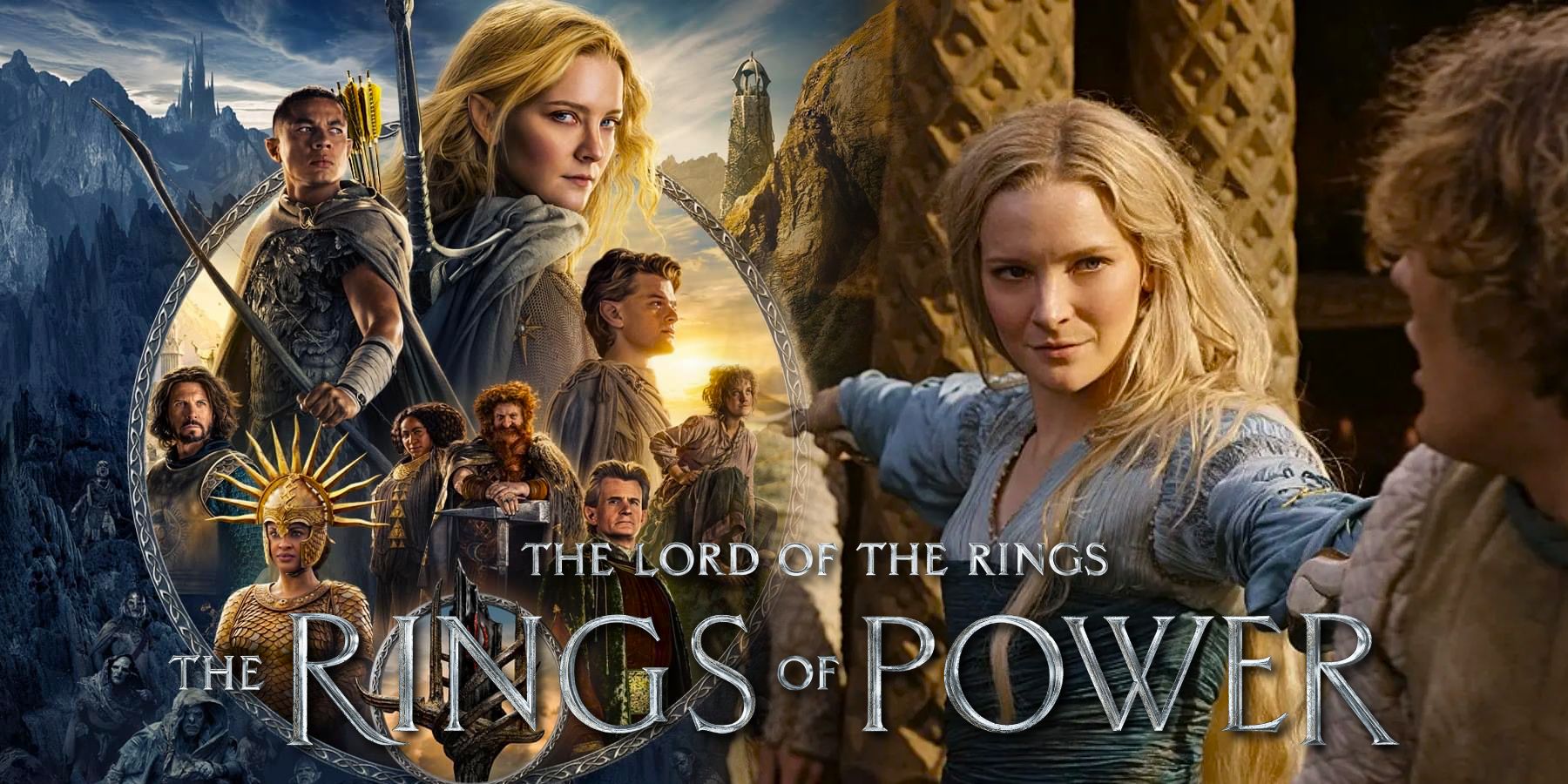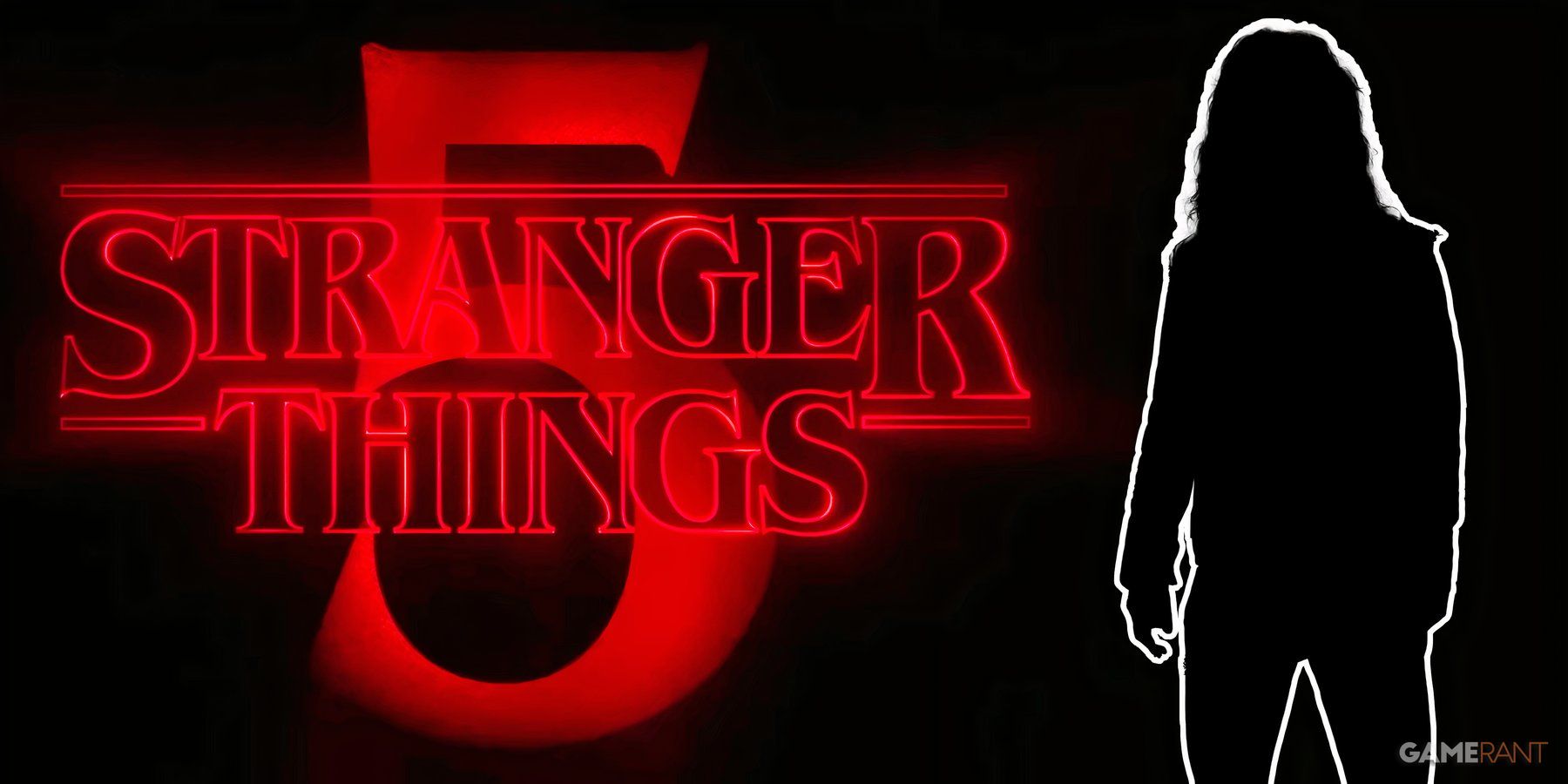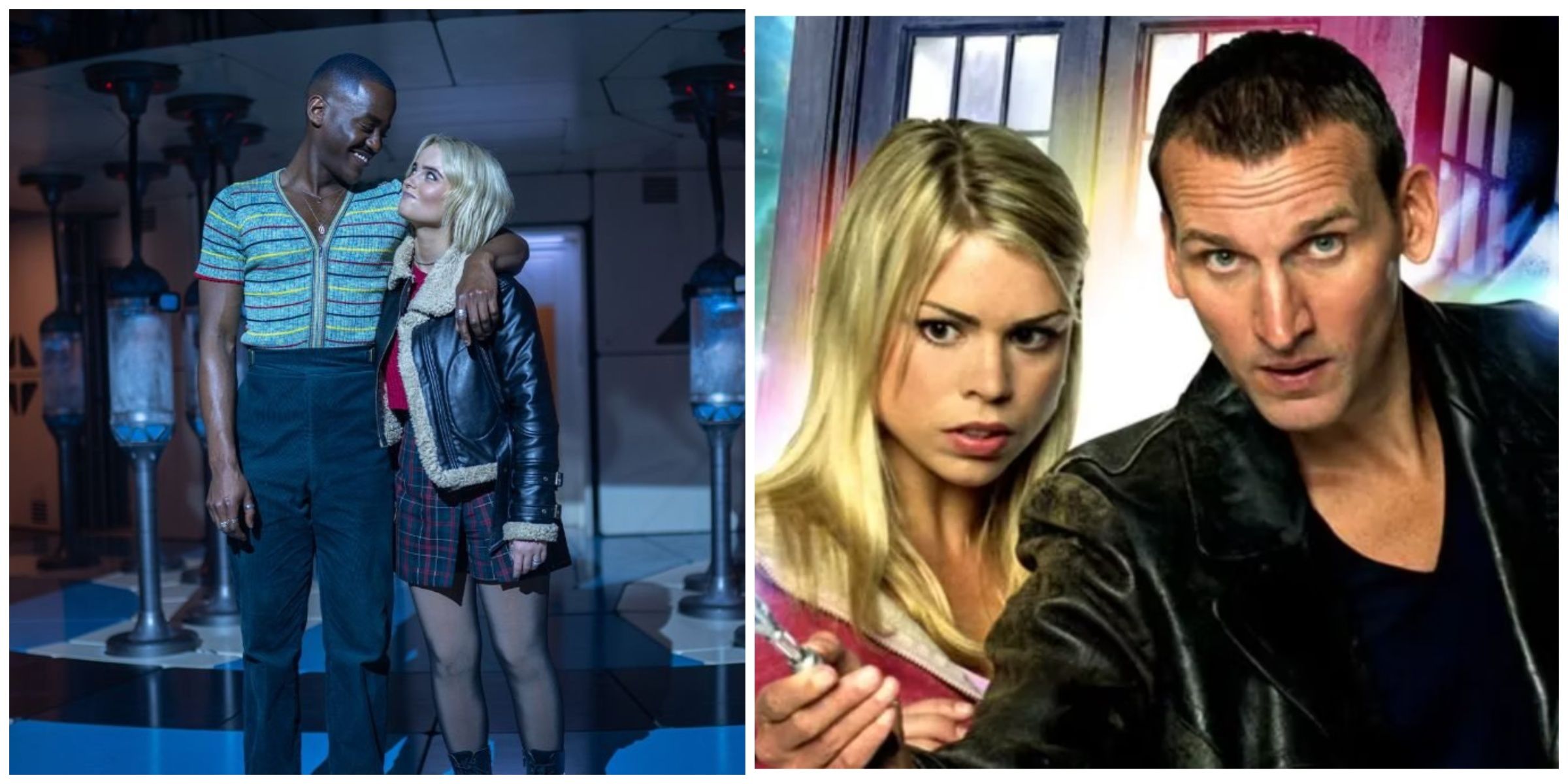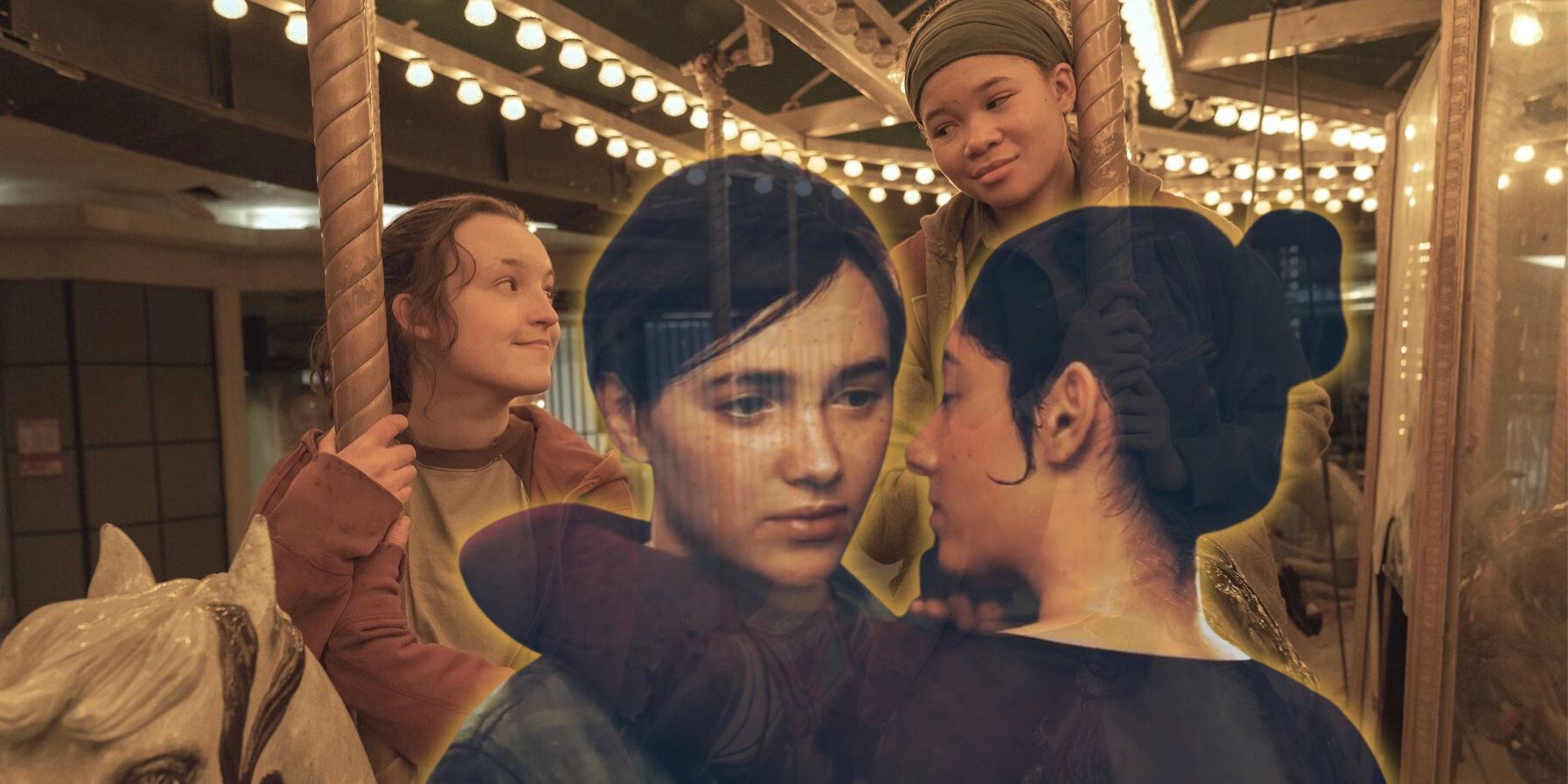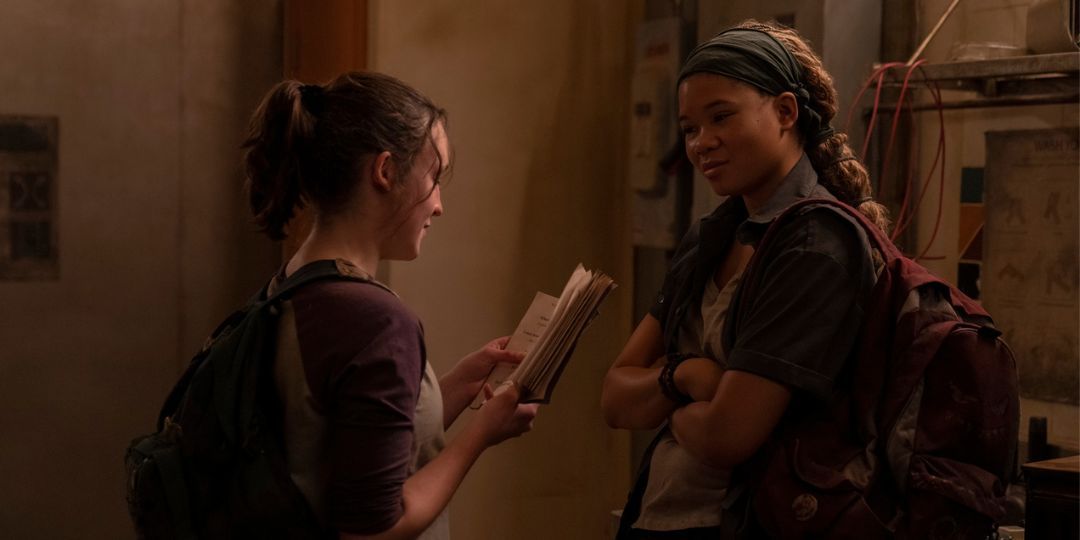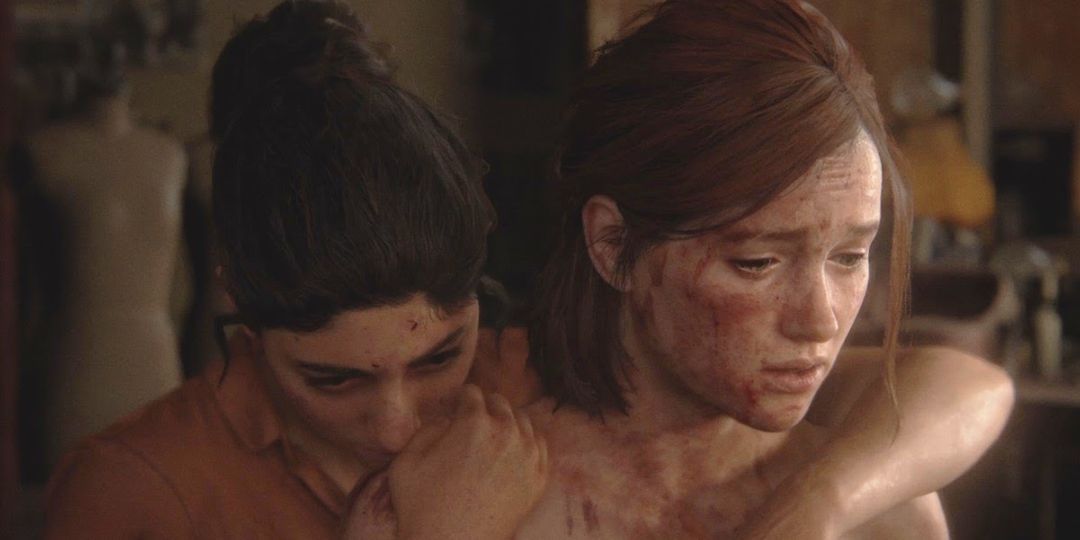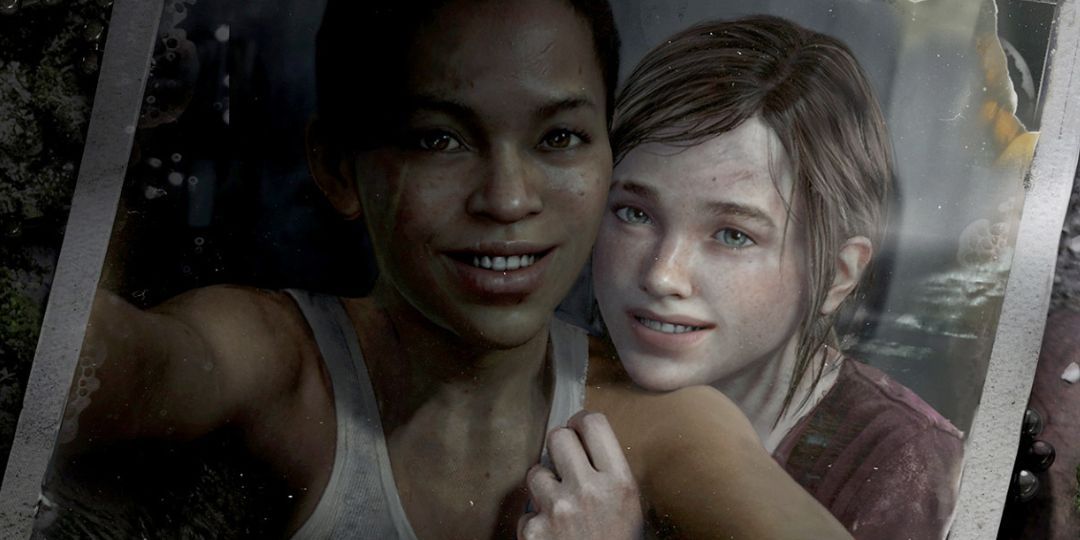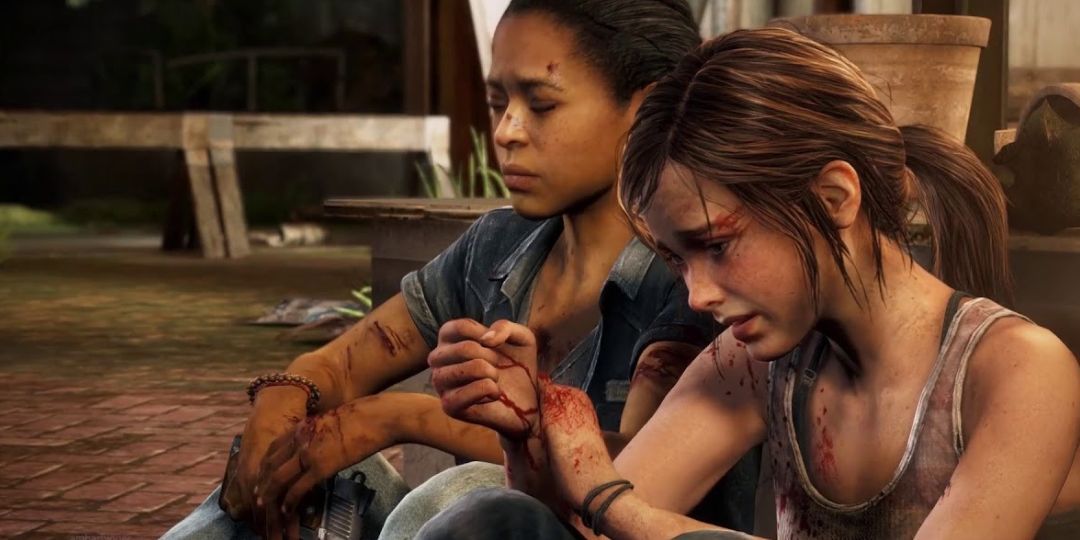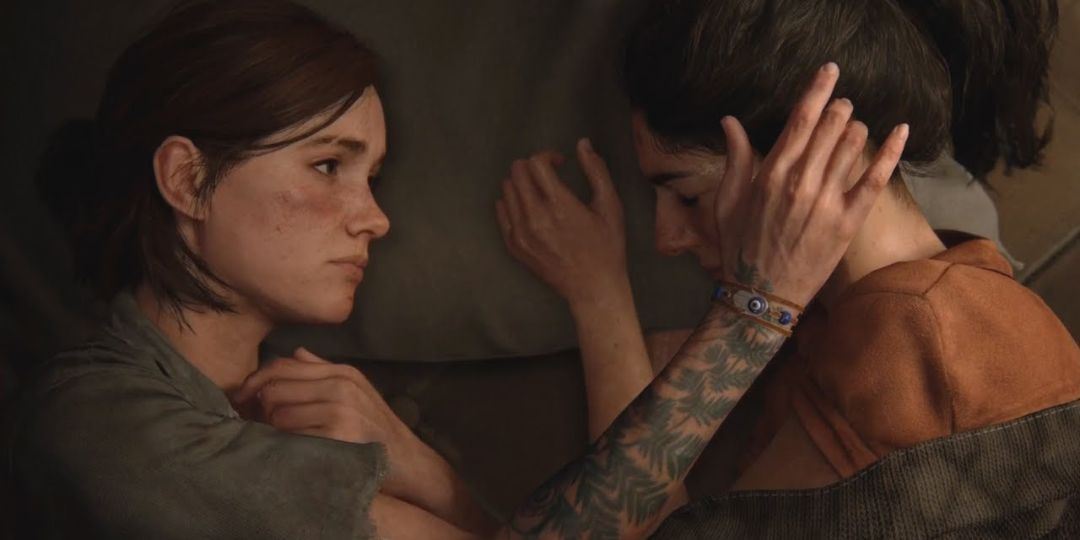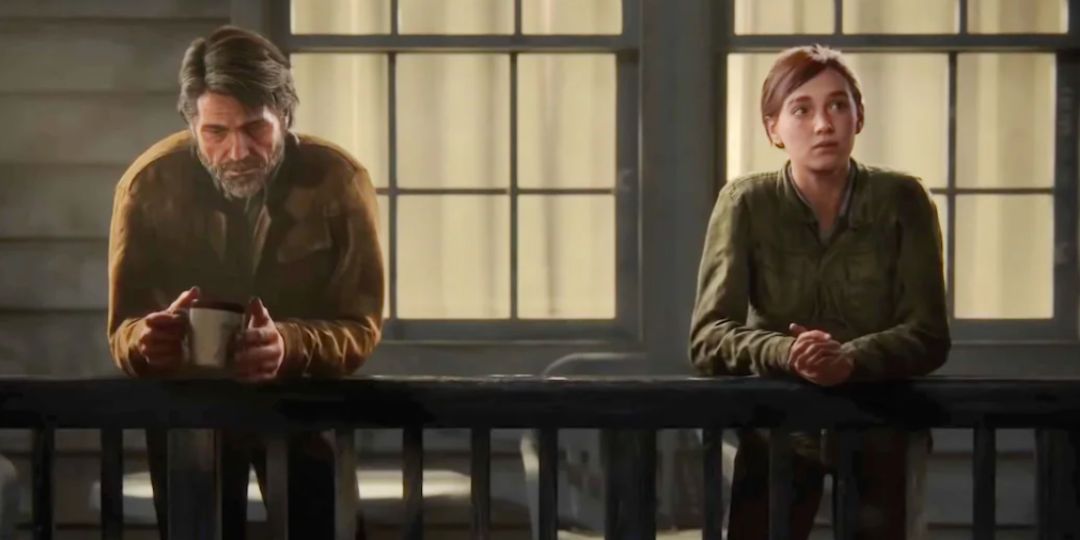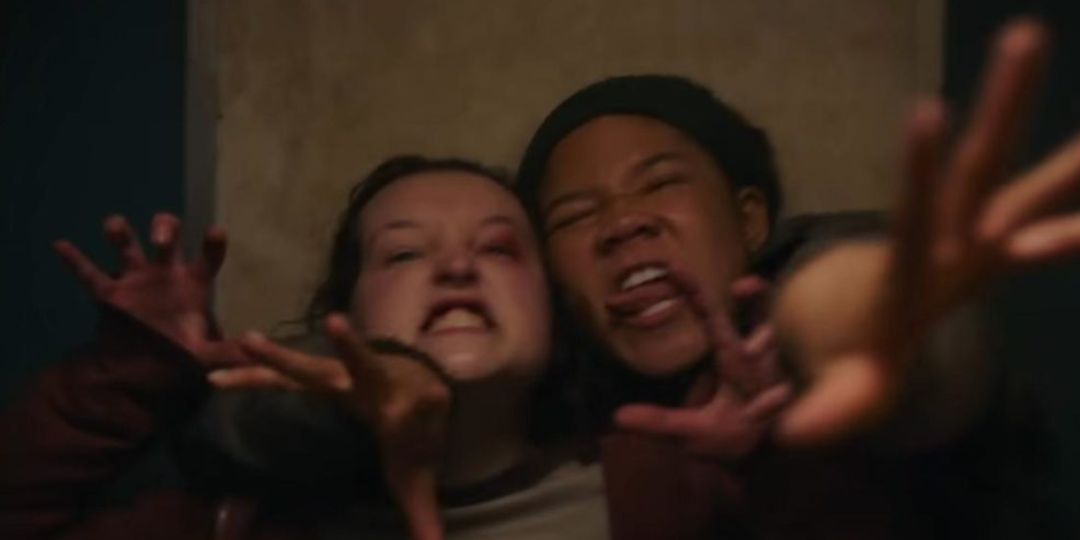In The Last of Us: Part 2, Joel (voice of Troy Baker) asks Ellie (voice of Ashley Johnson) about Jesse (voice of Stephen Chang), a young man he presumes Ellie has feelings for — because Joel has a “pretty keen eye” when it comes to observing people. “Not so keen with this one,” Ellie replies. Given the game’s unique narrative structure, players already know that Ellie is in a relationship with Dina (voice of Shannon Woodward), a young woman who also lives at the Jackson commune. In flashbacks, players get glimpses of Ellie’s journals: “Should I tell him? I don’t know. I don’t know how he’d react.”
After framing Ellie as gay in The Last of Us: Left Behind — downloadable content (DLC) that expands upon The Last of Us: Part 1 and delves into Ellie’s relationship with Riley (voice of Yaani King) — Naughty Dog made it a priority to write an openly queer Ellie in The Last of Us: Part 2. When the game came out in 2020, it was a landmark moment for LGBTQ+ representation in gaming. After all, Ellie is the first openly queer protagonist in a AAA game that most players encountered.
When HBO confirmed its adaptation of The Last of Us was moving forward, some fans feared the series would stray away from depicting Ellie as queer. From the jump, show co-creators Craig Mazin (Chernobyl) and Neil Druckmann (The Last of Us game series) have been committed to depicting Ellie as she’s written in the games. In Episode 2 of the series, Tess (Anna Torv) casually asks Ellie (Bella Ramsey) about having a boyfriend; the way the teenage survivor responds — a bit of hesitation, a tinge of awkwardness — says it all.
For fans of the games (and its pioneering LGBTQ+ representation), Episode 7 of HBO’s adaptation of The Last of Us has been highly anticipated since the network announced its title — “Left Behind”. Just as the DLC of the same name did 9 years ago, the episode centers on Ellie and Riley (Storm Reid). But even though nearly a decade has passed, Ellie’s story remains a crucial one — not just in gaming, but in fiction at large.
Is Ellie Gay In The Last Of Us Series?
Yes, Ellie is gay in The Last of Us series. After the release of The Last of Us: Left Behind DLC, Druckmann confirmed that the character’s queerness is canon. This was something Naughty Dog’s team explored more explicitly, and with more nuance, in The Last of Us: Part 2. Ellie’s identity — both the character’s sexual orientation and gender identity — are defining, but Ellie is by no means a one-dimensional character. Instead, Ellie’s experience of queerness adds a kind of texture and depth to the story that only such specificity can provide.
Spoilers for The Last of Us: Part 1, Left Behind, and Part 2 ahead.
Why Is The Last Of Us: Left Behind So Influential?
When Naughty Dog announced DLC for The Last of Us, fans were excited. The game was a runaway success, and Ellie had quickly become one of gaming’s most-loved characters. Previously, Druckmann explored Ellie and Riley’s relationship — how they met and who they were to one another — in the graphic novel The Last of Us: American Dreams. Although Riley doesn’t appear in the first game, she clearly shaped the Ellie gamers come to know. Left Behind was Naughty Dog’s way of exploring that defining relationship and the events that helped mold Ellie.
Left Behind tells two parallel stories, and one of them is set three weeks before Ellie meets Joel. In it, Riley, Ellie’s friend from the FEDRA-run military boarding school, surprise visits Ellie. Riley, who ditched the boarding school to join the Fireflies — a revolutionary group set on dismantling FEDRA’s rule — has been away for more than a month, leading Ellie to believe she’s dead.
Promising to tell Ellie everything, Riley convinces her friend to join her on one last adventure to an abandoned mall in the Boston QZ. The two avoid the seriousness of the conversation that’s to come, opting instead to raid an abandoned Halloween store, ride a carousel, and have a water-gun fight. Riley tells Ellie that she’s been assigned to another city by the Fireflies; she’ll be leaving the Boston QZ for good.
“I said it like an a****** but… I totally meant it. You should go,” Ellie says after their water-gun duel. “This is something that you’ve wanted for… You know, forever, so… Who am I to stop you?” Riley says that Ellie’s the only one who could convince her to stick around. The moment holds a certain weight to it — a kind of dancing around one’s feelings (while also being super obvious) that anyone who had a crush as a teenager can find relatable.
Riley finds a way to play Etta James’ rendition of “I Got You Babe” over a store’s speakers, and, after some encouragement, Ellie dances with her. It all seems carefree — shockingly so for a game like this — but then Ellie stops dancing and, through tears, asks Riley to stay. In response, Riley rips off her Firefly pendant — and Ellie kisses Riley. Nearly 10 years ago, this was a breakthrough moment in video games, which, especially in the AAA space, don’t have the most glowing track record with LGBTQ+ representation. One critic even called it “the first example of intimacy in a video game that's meant anything.”
Who Is Ellie Dating In The Last Of Us 2?
In The Last of Us: Part 2, gamers learn that Joel and Ellie have settled into life at the Jackson commune. Initially, Ellie isn’t aware of the truth of the first game’s ending: that Joel chose to save her, thus damning the Fireflies efforts to find a cure. But Ellie has things to keep hidden, too. While much of the game is set in the past, the Ellie of the present is drawn to Dina. The two dance together and share a kiss. Eventually, Dina follows Ellie to Seattle and learns about Ellie’s immunity. The relationship between the two is the game’s emotional center; it’s raw and empowering all at once.
And even though Ellie finds it hard to confide in Joel about matters of the heart, Joel does stand up for Ellie when one Jackson local calls Ellie a homophobic slur. Players learn that the surrogate father-kid duo have a strained relationship now. Ellie becomes distant, as anyone who’s hiding a part of themselves does, whether they want to or not. For his part, Joel does what he can to stay close to Ellie — he brings his former charge on more patrols, tries his hand at reading Ellie’s comics, and even gives Ellie the best birthday ever.
Still, what Joel’s hidden from Ellie causes a rift. “Making a vaccine would have killed you. So I stopped them,” Joel explains. And Ellie sobs with the weight of knowing the truth. Why didn’t Ellie die alongside Riley? The teenager, even at 19 years old, can’t figure it out. Instead of waiting for a death that never seemed to come, Ellie wanted to save the world. “I was supposed to die in that hospital. My life would have f***ing mattered. But you took that from me,” Ellie tells Joel.
For players, though, Ellie’s life does matter. Instead of meeting a “bury your gays”-style ending, Ellie endures and survives. Later, when Ellie comes out to Joel, they can’t make eye contact. True openness was never part of the equation for either party. Joel is murdered before he and Ellie can really reconcile. That chance to try and forgive Joel is stolen from Ellie. But the game touches on the fact that you can love the whole of someone, even if they didn’t show you their whole self.
Why Queer Representation In The Last Of Us Matters So Much
While it may seem like on-screen LGBTQ+ representation has come a long way in the last decade, it’s also true that a few shows that center queer and trans characters can’t just undo the medium’s years of harm. The best way to make sure viewers see themselves? Keep telling more queer stories. After all, queerness isn’t just one thing, or one type of story, or one type of character. And it’s that multitude of stories and characters that can really change the TV landscape.
HBO’s adaptation of The Last of Us proved pretty immediately that there are still many queer stories that have yet to be told — and that need to be told. Episode 3, “Long Long Time,” portrayed the achingly beautiful love story that unfolded between Bill and Frank, and, despite all post-apocalyptic odds, allowed them to lead a full life, together.
But what made The Last of Us game series so pioneering in the first place was that it centered on a queer protagonist. Queerness wasn’t just one of many options for Ellie (a la Mass Effect, which has its own merits, of course), but it was the way Ellie was written. That intentionality is what makes the character’s queerness in the HBO series so important. In Episode 6, “Kin”, Ellie learns Joel wants to stay back and let Tommy finish the journey to the Fireflies research facility. Understandably, emotions run high. “Everyone I have cared for has either died or left me,” Ellie tells Joel, hoping he’ll stay.
It’s a deep wound — one that has some roots in the loss of Riley, and of first love. While those circumstances are unrelated to Ellie’s queerness, that feeling of isolation or that everyone leaves once one lets them in is a parallel of sorts. In “Left Behind”, viewers learn how Riley and Ellie shaped one another. They get to see Ellie’s budding crush and sense of self. Precocious and biting, Ellie doesn’t seem like the vulnerable type, but “Left Behind” shows this other side of the character, and Ellie is made better for it.
And although Ellie’s greatest experience of loss stemmed from a relationship with Riley, Ellie also learns one of the show’s great lessons from Riley, too. After they’re bitten, Ellie and Riley wonder what to do next. Riley suggests that they fight — even if they’re doomed to become Infected. “Whether it’s two minutes. Or two days. We don’t give that up,” Riley says. “I don't want to give that up. My vote? Let’s just wait it out. You know, we can...be all poetic and just lose our minds together.” In the world of The Last of Us, there’s nothing rarer than having a choice — a choice to live, to love someone even if they'll die or leave, to be your whole self.
The Last of Us airs on HBO, and streams on HBO Max, every Sunday at 9 PM EST through March 12, 2023.

